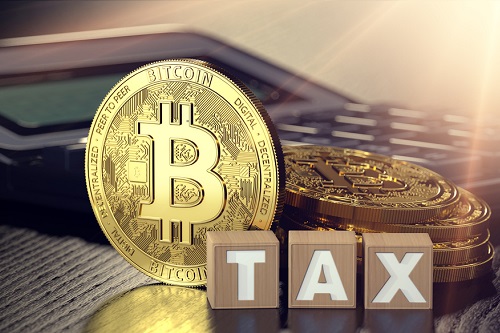Are you a foreign national in the UK who owns cryptocurrency? Do you understand the tax implications? In this article, Expat Focus partner and Founder of Global Expatriate Tax Services Limited, Oliver Heslop, looks at key issues to be aware of so you stay on the right side of HMRC.
Millions of British taxpayers, including expatriates, invest in cryptocurrency. You may have heard of Bitcoin (BTC), Ethereum (ETH), stablecoins and non-fungible tokens (NFTs) before, or perhaps these terms are completely foreign to you. Either way, you are most likely familiar with the crypto phenomenon in the 2010s, which was not dissimilar to the dot-com boom and other stock market shocks. Nowadays, in the UK alone, more than three million people own bitcoin (the first and most popular cryptocurrency). But what is cryptocurrency, and what are the tax implications for expatriates?
Cryptocurrencies – what are they?
A cryptocurrency is a digital currency designed to work as a medium of exchange through a computer network. In other words, crypto is a virtual currency, not attached to any bank, that is spent and stored electronically. The tokens that have dominated the market include Bitcoin and Ethereum.

It is a booming part of the UK and world economy, and a relatively new source of tax revenue. Some expatriates have invested in cryptocurrency and realised major returns, while others have made losses. Some simply treat “crypto” as a means of speculating on the markets.
The UK Chancellor, Mr Sunak, has recently outlined his ambition to make the UK a ‘global hub for cryptoasset technology.’ Cryptocurrency itself often inspires mixed reactions, with some writing it off as high risk and unpredictable, while others now treat it as part of their investment portfolio.
Cryptocurrency tax issues for expatriates in the UK
As mentioned earlier, many expatriates now buy and sell crypto. Some people even do it for a living. But what are the tax implications? Let’s look at an example of an average expat in the UK.
He or she will have invested in bitcoin and seen maybe a 20% return, or perhaps even 60%, 70%, or 100%. In the UK, sales of crypto currencies are liable to UK capital gains tax when sold. In the last few years, before UK law was written, many tax accountants did not expect this tax treatment. To learn more about how to mitigate this tax cost, it’s important to first understand crypto taxation in more general terms.
Stablecoins
A stablecoin is again a digital currency that is pegged to a “stable” reserve asset, such as the US dollar or gold. Stablecoins are designed to reduce volatility. If we read the markets, we will witness that upward (and downward) swings in value are less significant.
Examples of stable coins include Tether, Terra USD, and Binance USD. These are becoming just as popular as Bitcoin with expat investors. Their values do not explode and implode in the same way.
Stablecoin tax issues for expatriates in the UK
HMRC very recently confirmed that the sale or trading of stablecoins falls within UK capital gains tax. This is highly interesting to tax advisors, who have seen the new laws appear and evolve. Even as recently as two or three years ago, it would have been a struggle to explain how to tax stablecoins.
Let’s look at an example. If an expat in the UK invests in Terra USD and sees an 18% return, then the UK capital gains tax rules will kick in when that stablecoin is disposed of (e.g. exchanged for tokens). There are ways to minimise the tax with annual exemptions, such as unused losses.
Non-fungible tokens (NFTs)
The BBC defines NFTs as “‘one-of-a-kind’ assets in the digital world that can be bought and sold like any other piece of property.’ They are non-interchangeable units, and their uniqueness underpins their value.
The classic example of NFTs are works of art that are now stored only on blockchain. Another example is tradeable collectibles. In the last century, a child who adored football could collect stickers or player cards from cigarette packets and trade them with friends. With NFTs, that child follows the same principles, but he or she would buy NFTs that capture famous sporting moments (such as their team scoring the winning goal).
Expatriates in the UK (particularly in their 20’s to 40’s) have been acquiring and trading NFTs on a large scale. In 2021, the world market size for NFTs was $22billion, versus $230million the year before. Since the Ukraine war, that NFT market has shrunk again considerably. However, many expats have realised gains of £200 on an NFT trade, and plenty have enjoyed gains of £10,000 +.
NFT tax issues for expatriates in the UK
We now reach the limit of HMRC’s laws and rules, because there is no UK legal definition of an NFT. That is rare in the tax world – an asset with no HMRC regulation attached. However, the market, the press and the tax community have begun to raise some consistent views. In many cases, selling or flipping NFTs generates a capital gain, so this could be taxable under the same rules as stablecoins.
How is HMRC in the UK enforcing these taxes?
HMRC has led the world in clampdowns and seizures of NFT assets. It is now targeting masses of ordinary investors, not just criminal gangs. They sent thousands of “nudge letters” to taxpayers in 2021 and 2022. This is a reminder to each person of their obligations to report and file taxes (and HMRC know already that crypto assets are relevant to the recipient).
HMRC and the IRS and other national tax authorities are coordinating their efforts very closely – and far more efficiently than previously experienced.
HMRC is obtaining data from a wide range of exchanges. It is gathering information about frequency of transactions/trades. For instance, Coinbase UK, was served with a notice from HMRC requiring it to disclose details of all customers in a certain category.
Further advice
You must fully report any crypto activity – however, there are dozens of ways to legally reduce and avoid the associated tax costs. If you have any questions or require further advice, I have over 25 years’ experience offering tax advice to expats and can be contacted, for free and without obligation, via uktax.expatfocus.com.

